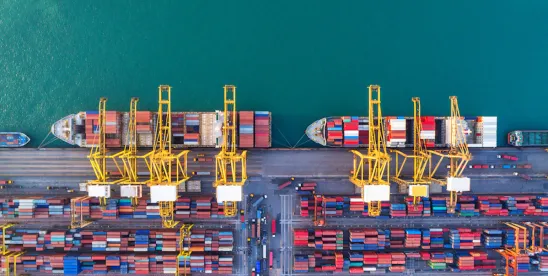On 21 August 2025, the European Union (EU) and the United States (US) published a Joint Statement setting out the Framework on an US-EU Agreement on Reciprocal, Fair, and Balanced Trade (“the Framework Agreement”). The Framework Agreement will greatly affect transatlantic economic relations, while also having implications for the implementation of the EU’s sustainability rules.
In particular, the Joint Statement describes commitments made by the EU to the US regarding the EU Deforestation Regulation (EUDR), Carbon Border Adjustment Mechanism (CBAM), Corporate Sustainability Due Diligence Directive (CS3D) and Corporate Sustainability Reporting Directive (CSRD).
Specifically, the EU commits to working to address the concerns of US producers and exporters regarding EUDR, “with a view to avoiding undue impact on US-EU trade”, and recognizing that production of relevant commodities in the US poses negligible risk to global deforestation. On CBAM, the European Commission commits to working to provide “additional flexibilities” as it implements it, beyond the increase of the de minimis exemption, currently under consideration by the EU Legislator.
Concerning the CS3D and CSRD, the EU notably commits to undertakings efforts “to ensure that [the CS3D and the CSRD] do not pose undue restrictions on transatlantic trade”. Furthermore, the EU undertakes to reduce the administrative burden on businesses of the CS3D, and to propose changes to the requirement for a harmonized civil liability regime for due diligence failures and to climate-transition-related obligations. A revision of this highly debated topic is currently under discussion by the EU Legislator in the context of the Omnibus Simplification Package proposals. The EU also commits to work to address US concerns on the imposition of CS3D requirement on companies of non-EU countries “with relevant high-quality regulations”.
The implications of the Joint Statement on these pieces of EU legislation are unclear. The normativity of the Framework Agreement is particularly uncertain, not least because of the use of non-binding verbs in its text, but also because the EU Sustainability regulatory landscape is actively evolving.
Beyond these pieces of EU legislation, the Joint Statement provides that the EU and the US commit to work together to ensure strong protection of internationally recognized labor rights, including regarding the elimination of forced labor in supply chains. This may be a subject on which there is a degree of alignment between the two parties, given US and EU legislation on the matter (e.g. the US Uyghur Forced Labor Prevention Act and the EU Forced Labor Regulation). Nevertheless, no specific EU or US piece of legislation addressing forced labor is mentioned in the Joint Statement.
The EU must now implement the Framework Agreement internally. Depending on how it chooses to do so, consequences for businesses and their obligations under the relevant pieces of EU legislation may vary. While the Framework Agreement matches the EU’s current simplification drive, how it chooses to implement the Joint Statement may still have consequences for businesses. Concrete legislative steps by EU institutions, notably the European Commission, may ascertain the scope of changes in the future.






 />i
/>i
